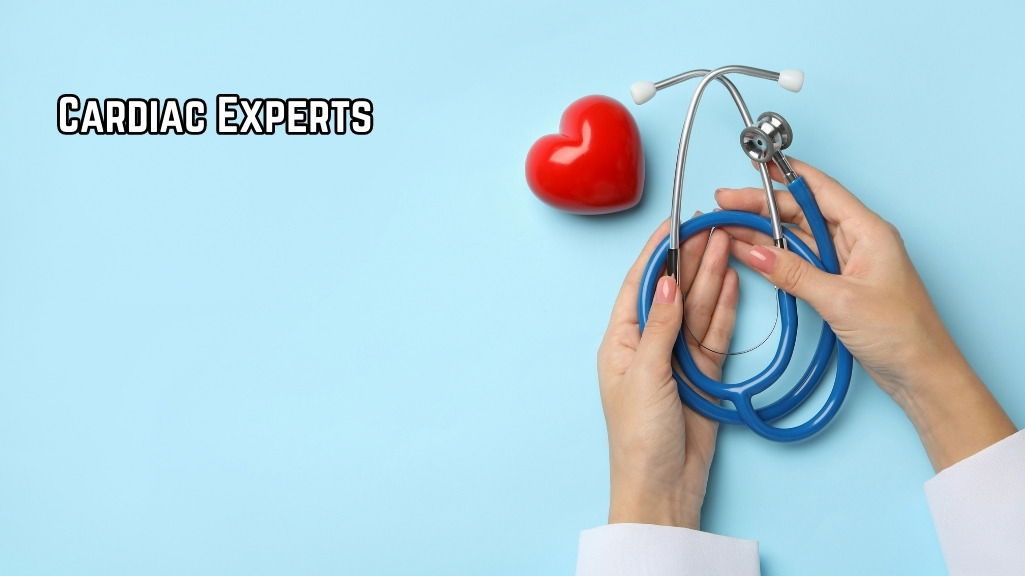Cardiac Experts: Best Advice for Maintaining a Healthy Heart
Swati Mandana
. 4 min read
Your heart is responsible for pumping around 2,000 gallons of blood each day, which carries oxygen and vital nutrients to the many cells and organs throughout your body. If you can make the job of your heart easier, it will be able to keep you alive for a longer period of time. This is an astonishing lot of effort for a muscle that is roughly the size of your fist. The convenience and accessibility of online chat make it easier than ever to access the resources you need to make positive changes for your heart. Modifications to one's way of life that are beneficial to one's heart can significantly cut one's risk of developing heart disease.

Control Your Portion Sizes
It is just as crucial how much food you consume as it is what food you eat. It's possible to consume more calories than you need to if you pile too much food on your plate, eat too quickly, and keep eating until you feel full. This will have an effect not only on your waistline but also on your heart. So practice portion control and try to eat without distractions like the television, the newspaper, or your mobile phone.
Maintaining Proper Dental Hygiene, Particularly by Flossing your Teeth on a Daily Basis
Because people who have periodontal (gum) disease frequently share the same risk factors for heart disease, dental health is an excellent indicator of overall health, including the health of your heart. C-reactive protein is a marker for inflammation in the blood vessels, and many studies have shown that bacteria in the mouth that are involved in the development of gum disease can move into the bloodstream and cause an elevation in C-reactive protein.
Ensure that you Always Stay at a Healthy Weight
One of the healthiest things you can do for your heart is to work toward achieving and then keeping a healthy weight. There is a correlation between being overweight or obese and a number of different health issues. Those who are overweight have a larger chance of contracting the following diseases, as stated by the Centers for Disease Control and Prevention (CDC)
How can you tell Whether you're Carrying Extra Weight?
The body mass index, also known as BMI, is one method that is utilized to determine an individual's body weight. It is not necessary for everyone to have a body mass index (BMI) that falls within the normal range; however, the objective is to achieve a healthy weight that is appropriate for you. Have a conversation with your provider about your ideal weight and any other vital statistics you ought to be aware of in order to make your life better.
Always Follow Your Doctor's Orders While Taking Medications
Whether you use medication to manage high cholesterol, high blood pressure, or diabetes, it is imperative that you pay close attention to the directions provided by your healthcare provider. If you don't understand something, you should never be afraid to ask questions. It is imperative that you never stop taking your medication without first seeing your physician, nurse, or pharmacist.
Refrain from eating more than you need
Although this piece of advice is most applicable during the holiday season, when there is an increase in the number of deaths caused by heart attacks due to the abundance of food and temptation, it is also relevant throughout the year.
Consuming a Large Quantity of Food in a Short Amount of Time Might Cause the Following
Try Your Best To Limit Stress
According to the American Heart Association (AHA), stress can be hard on your heart, but it can also lead to inactivity and overeating, both of which can lead to high blood pressure and high cholesterol. And that can increase the likelihood that you will develop heart disease.
Despite this, it is not Easy to Escape Stress
Dr. Haythe remarked that everyone is quite stressed out at the moment. "It's not easy." Meditation and deep breathing exercises are two activities that should be incorporated into your daily routine, according to Annapoorna Kini, MD, interventional director of the structural heart program at Mount Sinai Hospital. Both of these activities need very little time on your part.
Reduce the amount of salt that you consume
Individuals who drink an unhealthy quantity of salt have a higher risk of developing high blood pressure, which is a condition that contributes to the development of cardiovascular diseases like stroke and heart disease. The maximum daily intake of salt that is recommended for people is now set at 6 grams. You want to cut back on the amount of salt you consume in your diet and also study the labels on the food you buy so that you can determine the salt content.
Refrain from using tobacco in any form
Both using tobacco products and being around those who do use them are bad for your heart. Stopping smoking is the best gift of health you can give your heart, and it offers health benefits that are both immediate and long-term, including the potential to increase your lifespan by up to ten years. Following one year of being smoke-free, a person's risk of developing heart disease is around one-half of what it was before they smoked.
Conclusion
In conclusion, taking care of your heart is crucial to living a longer and healthier life. There are several modifications you can make to your lifestyle, such as controlling portion sizes, maintaining dental hygiene, staying at a healthy weight, following your doctor's orders when taking medication, limiting stress, reducing salt intake, and refraining from using tobacco. These lifestyle changes can significantly reduce your risk of developing heart disease, which is the leading cause of death in the United States. It's never too late to start taking care of your heart, and even small changes can make a big difference in your overall health and wellbeing.
More Stories from
Unveiling the Top Healthcare Careers: Roles, Qualifications, and Rewards
This article emphasizes the fulfilling nature of healthcare careers and highlights the importance of continuing education in the field.
The Many Advantages of Meditation, Along with Instructions: How to Practice?
This article discusses the benefits and importance of meditation for improving mental and physical health, managing stress, increasing focus and concentration.
Advancements in Medical Technology: Improving Healthcare Access
Embrace the future of healthcare with these advancements, fostering a more inclusive and accessible healthcare system for all.
Cognitive Enhancers: The Ethics and Implications of Brain-Boosting Drugs
Explore the ethics and implications of cognitive enhancers, also known as "smart drugs," that promise improved cognitive abilities.
The Versatile Guava: A Fruit with a Multitude of Uses
From its delightful taste in culinary creations to its potent health benefits and skincare properties, guava has become a beloved fruit worldwide.











.png?width=40&aspect_ratio=1:1)
